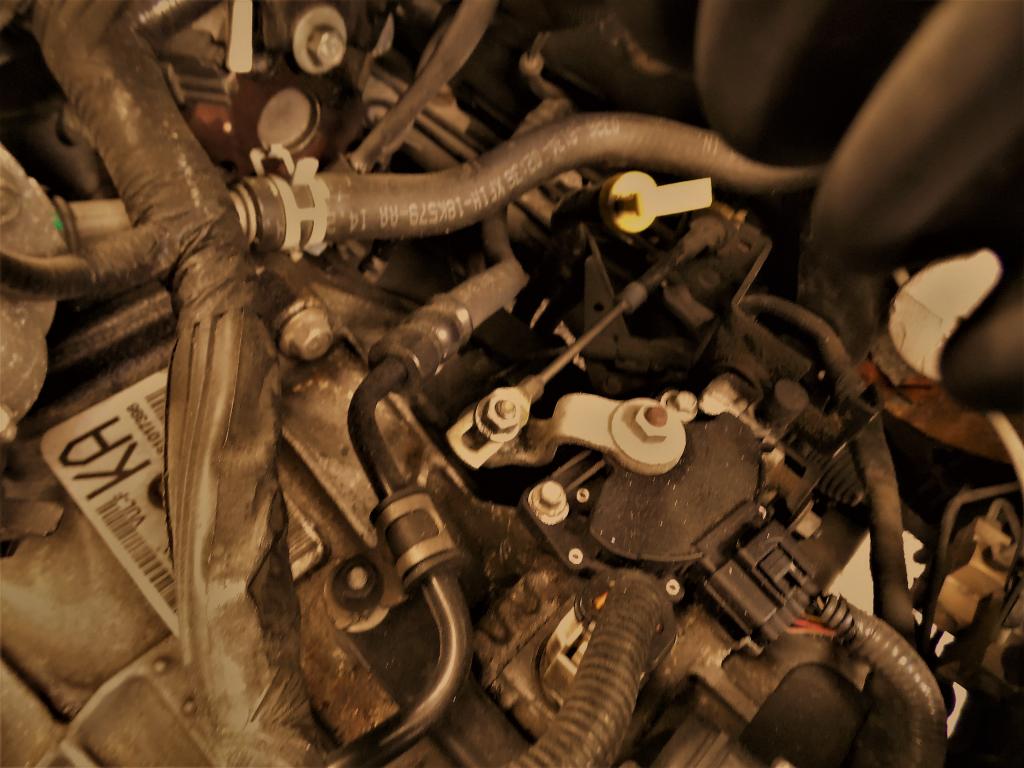As you drive down the winding roads of life, the last thing you expect is for your trusty steed to suddenly falter, leaving you in a state of bewilderment. Cars are like loyal companions, always there through the sunlit days and moonlit adventures. So when the engine cuts off unexpectedly, it feels as if your partner has chosen to abandon you, resulting in frustration and concern. This experience can be distressing, but understanding the underlying reasons for this disconcerting occurrence can illuminate the path to resolution. In this troubleshooting guide, we will dissect the common causes of engine cut-off while driving, equipping you with the knowledge to reclaim control of your vehicular companion.
Understanding the Phantoms of the Engine
When you embark on a journey, the engine is akin to the heart of your vehicle, pumpin’ life’s essence through its intricate networks. If this heart stutters or stops unexpectedly, several phantoms could be at play. These may range from fuel delivery issues to electrical gremlins that wreak havoc on your driving experience. Exploring these potential culprits can lead to enlightenment and eventual resolution.
Fuel System: The Lifeline of Your Engine
First, let us delve into the heart’s lifeline—the fuel system. A symphony of components work in unison to ensure your engine receives the right amount of fuel. If any one of these essential parts goes awry, your performance may falter. A clogged fuel filter, for instance, acts like a stranglehold, restricting the necessary flow of fuel to the engine. This deprivation can lead to stalling or complete engine cut-off. Regular maintenance—such as changing the filter and inspecting the fuel lines—can keep this symphony playing harmoniously.
Additionally, fuel pump failure is another villain in this narrative. Think of the fuel pump as a sentry responsible for delivering the elixir of life to your engine. If it succumbs to wear and tear, it may fail to provide adequate fuel pressure, which could cause your engine to sputter and die while cruising down the highway. Stay attuned to any unusual whining noises from the tank, as they could signal impending fuel pump failure.
Electrical System: The Brain Behind the Operation
While the fuel system deals with the lifeblood of your vehicle, the electrical system serves as the brain. It communicates with various components to manage everything from ignition timing to engine cooling. An inconsistency here could equal catastrophic failure. A malfunctioning ignition system is a primary suspect when diagnosing cut-off issues.
Imagine the ignition coil as the spark of life, igniting the air-fuel mixture within the engine’s cylinders. If this coil falters, the engine may stumble, misfire, or outright refuse to start. Checking your ignition coils and spark plugs can help illuminate issues that may lead to sudden engine shutdown.
Moreover, the battery could also be a silent foe. A battery that is weak or corroded can impede the flow of electricity needed to keep your engine humming. Inspecting and maintaining battery connections ensures that your vehicle remains undaunted even under the strain of long drives. Regular checks and voltmeter tests can help ascertain battery health.
Sensors and Modules: The Sentinels of the Machine
In the age of technology, your car is perched atop a mountain of sensors and electronic control modules, tirelessly monitoring and optimizing performance. These components are your sentinels, but when they become erratic, trouble ensues. The engine control unit (ECU) is the brain ensuring that every aspect of engine performance is finely tuned. A faulty sensor such as a mass airflow sensor (MAF) or crankshaft position sensor (CKP) can send erroneous readings to the ECU, resulting in incorrect adjustments and potential engine shutoff.
Plausibly, consider the vehicle as a high-tech orchestra. If one musician plays off-key, it can disrupt the whole performance. Regular diagnostics using an OBD-II scanner can reveal sensor malfunctions before they become catastrophic events in your driving experience.
Overheating: The Silent Assassin
Consider the engine as a steadfast warrior, but even the mightiest can fall victim to the deadly embrace of overheating. An engine that overheats can reach a point of no return, leading to auto body catastrophes. Causes of overheating can include a failing thermostat, coolant leaks, or a malfunctioning water pump. If your temperature gauge shows alarming spikes, it’s crucial to pull over and assess the situation. Ignoring the signs could result in irreparable damage.
Manual Checks: Becoming Your Own Mechanic
When faced with the enigmatic shutdown of your vehicle, learning to perform basic manual checks is invaluable. Start with the basics: monitor your fuel levels, inspect your battery connections, and keep an eye on dashboard warning lights. Familiarizing yourself with your car’s owner manual can also provide deeper insights into potential issues and remedies.
Moreover, learn to recognize the nuances of your vehicle’s behavior. Developing a keen ear to detect any irregular sounds can yield critical clues. After all, diagnosing engine cut-off issues is akin to solving a mystery—one where you, the detective, must piece together clues to find the elusive cure.
The Path Forward
When your engine cuts off while driving, it can feel as if the gravel road of life has suddenly turned into a treacherous cliff. Understanding the myriad of reasons behind this phenomenon and having a troubleshooting mindset can empower you to navigate your way back to safety. Regular maintenance, timely diagnostics, and a discerning eye can keep your beloved vehicle singing its symphony, allowing you to meet every journey head-on. After all, the world is vast, and your adventure awaits just beyond the horizon.
